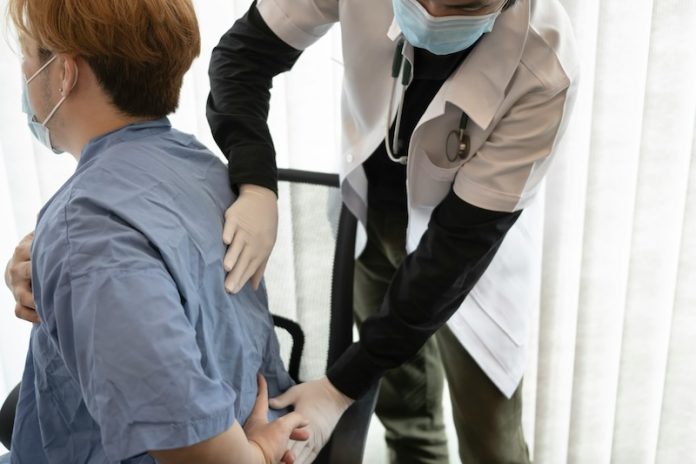
Back pain is a problem that many people experience, especially as they age. One common cause is a condition called degenerative disk disease.
This happens when the soft, cushion-like disks between the bones of the spine wear out over time. When the disks break down, it can cause pain and stiffness, making it harder to move or do daily activities.
Doctors and researchers have been looking for better ways to help people with back pain. Recently, a new treatment has shown promise.
It involves an injection called “viable disk allograft supplementation.” This treatment could help reduce back pain and improve movement for people dealing with degenerative disk disease.
The procedure works by injecting a special fluid directly into the damaged disk in the spine. This fluid contains living cells that can help repair the disk. These cells encourage the body to rebuild the worn-out tissue, potentially reducing pain and making it easier to move.
The treatment is simple and does not require surgery. A doctor uses a needle to inject the fluid, and the patient can go home the same day. Because there are no cuts or incisions, it is considered a less invasive option compared to traditional treatments for back pain.
To see how well the treatment works, Dr. Douglas Beall and his team conducted a study. They tested the injection on 50 people with back pain. The participants included men and women of different ages, races, and body types.
Some of the participants received the special injection, while others received a placebo injection containing only a saline solution. This allowed researchers to compare the effects of the real treatment to the placebo.
The results were encouraging. About 60% of the people who received the new injection reported that their pain was reduced by half.
In addition, 70% said they could move more easily and comfortably after the treatment. Importantly, none of the participants experienced serious or long-term side effects from the injection.
Chronic back pain can make everyday activities, like working or spending time with family, much harder. For people with this condition, the new injection could make a big difference. It offers the chance to reduce pain and regain mobility, which could improve their quality of life.
Another potential benefit of this treatment is that it might reduce the need for strong painkillers, like opioids. Opioids are commonly used to manage chronic pain, but they come with risks.
Long-term use of opioids can lead to side effects, addiction, and other serious health problems. By providing an alternative to opioids, this injection could help people avoid those risks.
While the early results are promising, this treatment is still in the experimental stage. The study was sponsored by a company called VIVEX Biologics, Inc., which is working to develop new medical treatments.
Dr. Beall, who led the study, also serves as a medical advisor for the company. This means further research is needed to confirm the findings and ensure the treatment is safe and effective for a larger group of people.
Future studies will need to include more participants to see if the injection works for a wider range of people with back pain. It’s also important to understand that this treatment is not a guaranteed solution for everyone.
While it shows great potential, it’s just one part of the ongoing effort to find better ways to treat back pain.
For now, this injection is an exciting step forward. It offers hope to people struggling with the discomfort and limitations caused by degenerative disk disease.
If future research continues to show positive results, this treatment could become widely available, helping many people return to a more pain-free and active life.
If you care about pain, please read studies about vitamin K deficiency linked to hip fractures in old people, and these vitamins could help reduce bone fracture risk.
For more information about wellness, please see recent studies that Krill oil could improve muscle health in older people, and eating yogurt linked to lower frailty in older people.
Copyright © 2024 Knowridge Science Report. All rights reserved.



